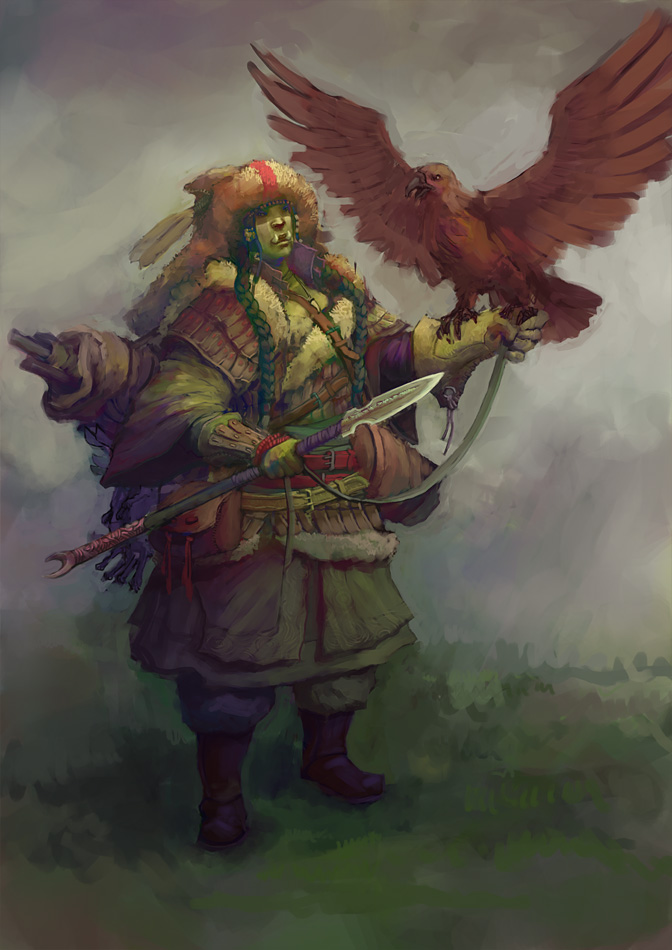Pustinian
Culture
Shared customary codes and values
Horses have always played an important role in the average pustinian daily life as well as in the arts. Hospitality is so important in the steppes that it is traditionally taken for granted. The Pustinian word for hero, baatar, appears frequently in personal names. Traditional words such as temul signified a way to describe creativity and passion; temul was used in several Pustinian words and had the meaning: "to rush headlong, to be inspired or to have a sense of creative thought, and even to take a flight of fancy." It can be seen from Pustinian perspective as "the look in the eye of a horse that is racing where it wants to go, no matter what the rider wants."
Pustinians traditionally were afraid of misfortunes and believe in good and bad omens. Misfortune might be attracted by talking about negative things or by persons that are often talked about. They might also be sent by some malicious shaman enraged by breaking some taboo, like desecrating waters or mountains, etc.
The most endangered family members were children. They are sometimes given non-names like Nergui (Pustinian: without name) or Enebish (Pustinian: not this one), or boys would be dressed up as girls. "Since people of the steppe received only one name in life, its selection carried much symbolism, often on several levels; the name imparted to the child its character, fate and destiny." Before going out at night, young children's foreheads are sometimes painted with charcoal or soot to deceive evil spirits that this is not a child but a rabbit with black hair on the forehead.
Major organizations
Almost all Pustinians inhabit in the The Kingdom of Ravna.





Comments